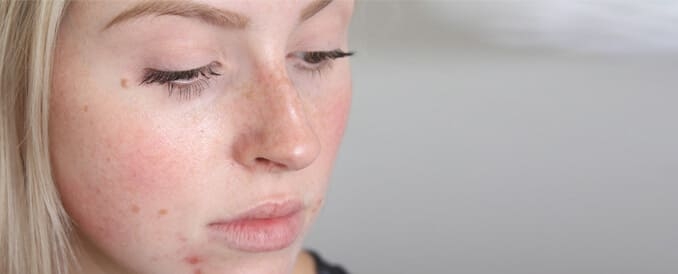
Acne, a common skin condition affecting millions of people worldwide, can be more than just a cosmetic issue. It often leaves lasting scars and impacts self-esteem, making effective treatment crucial. Among the various treatments available, laser acne treatment has emerged as a promising option. This article explores why laser acne treatment is worth considering, highlighting its benefits, effectiveness, and how it compares to other methods.
Laser Acne Treatment Dubai utilizes advanced technology to target the root causes of acne and improve skin texture. The procedure involves using focused light beams to penetrate the skin's layers, targeting the sebaceous glands, and reducing inflammation. By doing so, laser treatment helps to decrease the production of acne-causing oils and promotes the healing of existing acne lesions.
One of the key reasons why laser acne treatment is worth considering is its ability to offer precise and controlled treatment. Unlike topical treatments or oral medications, which can affect the entire body, laser therapy targets only the specific areas affected by acne. This targeted approach ensures that the surrounding healthy skin remains unaffected, reducing the risk of side effects.

1. Effective for Various Types of Acne
Laser acne treatment is versatile and effective for different types of acne, including cystic acne, nodular acne, and post-acne scars. It can address deep-seated acne that may not respond well to topical treatments. The laser technology works by targeting the underlying causes of acne, leading to clearer skin and a reduction in the frequency and severity of breakouts.
2. Minimal Downtime
Compared to other acne treatments, laser therapy often involves minimal downtime. Patients may experience some redness or swelling in the treated areas, but these side effects usually subside within a few days. This is a significant advantage for those with busy lifestyles who cannot afford extended recovery periods.
3. Long-lasting Results
Laser acne treatment provides long-lasting results when combined with a proper skincare routine. Many patients experience significant improvement in their skin's appearance after a few sessions. Additionally, laser therapy can help prevent future breakouts by addressing the root causes of acne and promoting the skin's natural healing processes.
4. Reduced Risk of Scarring
One of the most significant advantages of laser acne treatment is its ability to reduce the risk of scarring. Traditional acne treatments, such as oral medications and topical creams, can sometimes lead to skin damage or discoloration. In contrast, laser therapy targets acne at its source while promoting the regeneration of healthy skin, reducing the likelihood of post-acne scars.
When considering acne treatments, it’s essential to evaluate how laser therapy stacks up against other options.
1. Topical Treatments
Topical treatments, such as creams and gels containing benzoyl peroxide or salicylic acid, are commonly used for acne management. While these can be effective for mild to moderate acne, they may not provide the same level of precision as laser therapy. Additionally, topical treatments can be harsh on the skin, leading to dryness or irritation.
2. Oral Medications
Oral medications, including antibiotics and hormonal treatments, can be effective for severe acne. However, they often come with potential side effects, such as gastrointestinal issues or hormonal imbalances. Laser acne treatment offers a targeted approach with fewer systemic side effects, making it a favorable option for many individuals.
3. Chemical Peels
Chemical peels involve applying a chemical solution to the skin to exfoliate and remove dead skin cells. While this can help improve acne and reduce the appearance of scars, it may require multiple sessions and can cause temporary skin irritation. Laser therapy, on the other hand, provides a more precise treatment with minimal discomfort.
4. Light and Heat Therapies
Other light and heat-based treatments, such as blue light therapy or intense pulsed light (IPL), are alternatives to laser acne treatment. These therapies also target acne-causing bacteria and inflammation but may not offer the same level of precision and long-term results as laser technology.
Laser acne treatment typically involves a consultation with a dermatologist to assess your skin and determine the appropriate laser technology for your needs. During the procedure, the dermatologist will use a handheld device to deliver targeted laser energy to the affected areas. Most patients report minimal discomfort during the session, often describing it as a mild tingling sensation.
After the treatment, patients may experience temporary redness or swelling, similar to a mild sunburn. It is crucial to follow post-treatment care instructions provided by your dermatologist to ensure optimal results and minimize any potential side effects.
Laser acne treatment stands out as a valuable option for individuals struggling with acne and its aftermath. Its ability to target specific areas, reduce scarring, and offer long-lasting results makes it a compelling choice. While it may not be suitable for everyone, consulting with a qualified dermatologist can help determine if laser therapy is the right solution for your acne concerns. If you are looking for an effective and precise acne treatment, laser therapy is certainly worth considering.